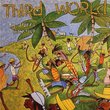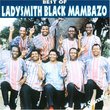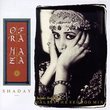| All Artists: Various Artists Title: Divas of Mali Members Wishing: 1 Total Copies: 0 Label: Shanachie Original Release Date: 11/19/1996 Re-Release Date: 12/3/1996 Genres: International Music, Pop Style: Africa Number of Discs: 1 SwapaCD Credits: 1 UPCs: 016351647825, 669910130063 |
Search - Various Artists :: Divas of Mali
 | Various Artists Divas of Mali Genres: International Music, Pop
Divas of Mali is an outstanding collection of Mali's greatest female singers from the jali or musician caste, including Kandia Kouyate (Kita Kan), Nahawa Doumbia, and Ami Koita. Several cuts feature the kora, a lovely harp... more » |
Larger Image |
CD DetailsSynopsis
Amazon.com Divas of Mali is an outstanding collection of Mali's greatest female singers from the jali or musician caste, including Kandia Kouyate (Kita Kan), Nahawa Doumbia, and Ami Koita. Several cuts feature the kora, a lovely harplike instrument dominant in traditional Malian music, and balafon, a xylophone, also common to Malian music. These 11 renowned divas sing traditional Malian songs along with a few African pop tunes with verve and expertise. Koita's "Touyna Tigui" features her astounding vocal range and passionate style, while Djeneda Kiakite's "Taoume Maide" flows with gurgling guitar, airy vocals, and woody balafon. Overall, a beautiful collection for listeners interested in exploring the stars and sound of this West African country. --Karen Karleski Similar CDs
Similarly Requested CDs
|
CD ReviewsExotic and powerful-great singers, beautiful instrumentals. 03/22/1999 (5 out of 5 stars) "This album provides a range of different styles of Malian music, reflecting the different regions, and the degree of assimilation of Western music. I was suprised by the delicacy of much of the instrumentation; the vocals seemed harsh at first, but their beauty becomes self-evident after a few listenings. My favorite of the songs is "Djugu Magni", by Yayi Kanoute, which is very pop with a strong beat, but features an interlude of music reminiscent of Greece. I only wish this album provided a lyric sheet with translations! But I enjoyed the songs for the sound alone. By the way, the photos included are great." Exuberant and exalted --- Q-tips for the imagination Jesse Kornbluth | New York | 01/02/2008 (5 out of 5 stars) "Bamako, the capital of Mali, is derived from a word that means "crocodile swamp." Take that as a metaphor for this landlocked country, the largest in West Africa. Seven centuries ago, Mali controlled much of the African gold trade; now it's the world's fifth poorest nation. If you've read Peace Corps volunteer Kris Holloway's great memoir, Monique and the Mango Rains: Two Years with a Midwife in Mali, you know the grim realities for its women --- they marry young and often die in childbirth. As for female cutting, it's pretty much the rule.
And yet the culture of Mali permits --- even encourages --- women to sing. This isn't immediately apparent in the music from Mali I've praised on these screens. In part, that's because all of its musicians are in the shadow of the great blues guitarist (and farmer) Ali Farka Toure. And I find no singer more evocative that Boubacar Triore. So until now the only woman I've showcased is Mariam Doumbia, who is half of the spectacular duo, Amadou & Mariam. That's why it gives me great pleasure to alert you to the charms of a CD that features eleven of Mali's best-known female singers. Let's put that in perspective: I love the music of Mali --- and I knew none of them. Does that make them esoteric, cult, obscure? Depends on where you're sitting and how you feel about people whose names elude easy memorization. Although you may not know of these women, you have only to hear them once to want to hear them again and again. For this is spirited music, subtle and sophisticated and rich with unexpected harmonies and rhythms. It's backed by instruments that sound, at first, wondrous strange --- a modified harp and a xylophone, for example --- and then just wondrous. These divas are Q-tips for the imagination. I've gleaned a few of the musicians' stories, and they go beyond the classic American success story of a hardscrabble youth, a church choir and a chance meeting with a talent scout. Nahawa Doumbia, for one. Shortly after her birth, her mother predicted that Nahawa would be a singer. Then she died, leaving her to be raised by a grandmother who consulted blacksmiths, hoping that their alleged magical powers would change the girl's fate. In 1980, over her father's objections, she entered a national contest and won. Listening to "Divas of Mali" reminds me of the myth of the terrible emperor, who threw his victims into a giant copper pot --- and then heated the pot. But the vessel was so shaped that, as the heat became more and more intense, the screams of the victims sounded more and more like beautiful music. So it is here. Out of terrible poverty and centuries of oppression, these singers find great energy, strength and joy. You won't understand the words and there's no lyric sheet to give you a clue, but it won't matter --- you can't mistake the exuberance of these far too low-profile divas. " |

 Track Listings (11) - Disc #1
Track Listings (11) - Disc #1











